
What is AI SEO and Why is it Important?
AI SEO, or Artificial Intelligence Search Engine Optimization, is the practice of using AI SEO tools to enhance and streamline SEO strategies. With the help of AI SEO, marketers can optimize websites for search engines more effectively and efficiently.
The Role of AI SEO in Modern Digital Marketing
Artificial Intelligence (AI) has become a game-changer in digital marketing. It's not just about automating routine tasks anymore, but also about making strategic decisions based on data analysis. AI is now applied in various aspects of SEO - from content creation to keyword research - aiding marketers to optimize websites for search engines more effectively and efficiently.
The Benefits of AI SEO
This innovative technology brings numerous benefits to the table:
- Faster execution of tasks: With AI SEO, marketers can automate repetitive tasks such as data collection and analysis, freeing up valuable time for strategic planning and implementation.
- Improved search engine results page (SERP) rankings: AI SEO can analyze vast amounts of data faster than any human can, thereby identifying trends and patterns that could impact SERP rankings. This capability enables marketers to adapt their strategies quickly, leading to better visibility on search engines.
- Enhanced content creation: AI SEO Tool such as junia.ai can generate high-quality, SEO-friendly content based on specific keywords and target audience preferences. This not only saves time but also ensures consistency and relevancy in the content produced.
- Refined keyword research: AI SEO tools can analyze search trends, competition, and user intent to identify the most relevant keywords for a website. This helps marketers optimize their content and target the right audience effectively.
- Improved user experience: AI can analyze user behavior, preferences, and feedback to optimize website design, navigation, and overall user experience. This leads to higher engagement, lower bounce rates, and increased conversions.
Limitations of AI SEO
However, along with these benefits come some limitations:
- Need for Effective Tool Usage: AI SEO tools provide valuable data, but they require human intervention to interpret and plan strategies based on that data. If you lack expertise in effectively using these tools, you may not achieve optimal results.
- Human Expertise Remains Essential: Despite technological advancements, SEO still requires human input to humanize AI-generated text. Subtle nuances and creative elements of SEO strategy are aspects that only a human can comprehend.
How Search Engines are Using AI For SEO
Search engines like Google are also harnessing the power of AI to enhance their algorithms. Updates such as RankBrain and BARD are prime examples:
- RankBrain: Introduced by Google in 2015, uses machine learning (a subset of AI) to understand the context of content and deliver more relevant search results. It learns from user behavior and tweaks search results accordingly.
- BARD (Bidirectional Encoder Representations from Transformers): Another update from Google that uses neural networks for natural language processing. It helps Google better understand the context of words within search queries, thus delivering more accurate results.
What Will You Learn in this Article?
In the following sections of this article, we will delve into:
- The different types of AI SEO
- Various AI SEO tools and plugins available in the market
- The impact of AI on User Experience (UX)
- The rise of Answer Engine Optimization (AEO)
- The benefits and limitations of AI SEO
- How the Generative AI Search will impact the SEO industry
- Ethical considerations in AI SEO
- The future of AI in SEO
Dive in to discover everything you need to know about AI SEO!
Types of AI SEO
Artificial Intelligence (AI) plays a crucial role in various aspects of Search Engine Optimization(SEO). It assists in tasks ranging from creating and improving content to analyzing user behavior and predicting trends. Let's explore the different types of AI SEO.
AI SEO in Content Creation
.png?token=eyJhbGciOiJIUzI1NiIsInR5cCI6IkpXVCJ9.eyJ1cmwiOiJ1c2VyLWdlbmVyYXRlZC1pbWFnZXMvZjJmOThkNWUtNjNjNC00MTJiLTkyY2QtZjgyNDI5NTE3YWRkL3VubmFtZWQgKDEpLnBuZyIsImlhdCI6MTY5ODEyNDMyMywiZXhwIjoxODU1ODA0MzIzfQ.HYLzPTZyc6zZDecPnzq-ldzzpwQIKuQXj-YmiZvaEoo)
The advent of AI has greatly changed the way content is created. It is a powerful tool that provides new opportunities for identifying content gaps, discovering popular topics, and understanding trends in consumer behavior. These factors are important when it comes to creating content that captures the attention of your audience.
Leveraging AI SEO Tools: A Case Study with Junia AI
There are several AI writers that can greatly improve your content creation process. One such tool is Junia AI, which is known for its ability to enhance your SEO competitive analysis. This tool does the following:
- Automates repetitive tasks, saving you time.
- Improves the accuracy of your analysis with data-driven insights.
- Provides detailed information about your competitor's strategy, helping you develop a successful counter-strategy.
- Rewrite Competitors' articles, making them unique to your website while maintaining the essence of the original content.
- Generates SEO-optimized content with one click, enabling you to quickly create high-quality articles that rank well in search engines.
With these features, Junia AI makes SEO competitive analysis more efficient and reliable.
Generating Content Ideas with AI
Aside from competitive analysis, AI SEO tools can also offer suggestions for blog posts, articles, or social media posts. They do this by examining trending topics or specific needs within an industry and then generating relevant content ideas. For example, if you're in the fashion industry, an advanced AI SEO tool might propose writing about "The latest summer trends". This suggestion would be based on current search data and consumer behavior patterns.
This means that incorporating AI into content creation allows you to stay up-to-date with what your potential customers are interested in at any given moment. As a result, you are better able to produce content that matches their interests and needs.
By utilizing the power of AI in content creation, you can develop content that is more relevant and captivating for your audience. This can greatly enhance your SEO performance and give you an advantage over your competitors.
AI SEO in Content Optimization
.png?token=eyJhbGciOiJIUzI1NiIsInR5cCI6IkpXVCJ9.eyJ1cmwiOiJ1c2VyLWdlbmVyYXRlZC1pbWFnZXMvZjJmOThkNWUtNjNjNC00MTJiLTkyY2QtZjgyNDI5NTE3YWRkL3VubmFtZWQgKDIpLnBuZyIsImlhdCI6MTY5ODEyNDQ0MCwiZXhwIjoxODU1ODA0NDQwfQ.BdfoDZ37oRX8MirFhKimrqjR25uc4ixtQm_z8hPHgUE)
Content optimization is another area where AI SEO excels. It helps optimize content for both search engines and users, making it a streamlined and efficient process.
Here are some ways AI aids in content optimization:
- Topic Clusters: One of the innovative approaches that AI brings to the table is the creation of groups of related content known as 'topic clusters.' This technique not only structures your content logically but also improves the website structure overall. A well-structured site is easier to navigate, both for users and search engine bots, leading to improved SEO performance. Tools such as Junia AI help automate this process by analyzing your existing content and suggesting potential topic clusters.
- Ideal Content Length: Numerous studies have shown that longer, more comprehensive content tends to perform better in search engine results pages (SERPs). AI-powered long-form writing tools like Junia AI can assist you in creating long-form content that is both engaging and SEO-friendly. They do this by analyzing data from top-ranking pages and suggesting the optimal length for your own content.
- Keywords/LSI keywords: The right keywords are the backbone of any successful SEO strategy. With AI, you can take the guesswork out of this process. AI SEO tools can identify primary and secondary (LSI) keywords that will boost your site's visibility on SERPs.
- E.A.T standards: Google's E.A.T (Expertise, Authority, Trustworthiness) guidelines play a crucial role in how it ranks webpages. To meet these standards, your content needs to demonstrate expertise in its subject matter, authority through backlinks and social shares, and trustworthiness through accurate information and secure website practices. AI can analyze your content against these parameters and provide actionable recommendations to enhance these aspects. For instance, Semrush offers suggestions on improving your E.A.T score, thereby boosting your site's ranking potential.
AI SEO in Keyword Analysis
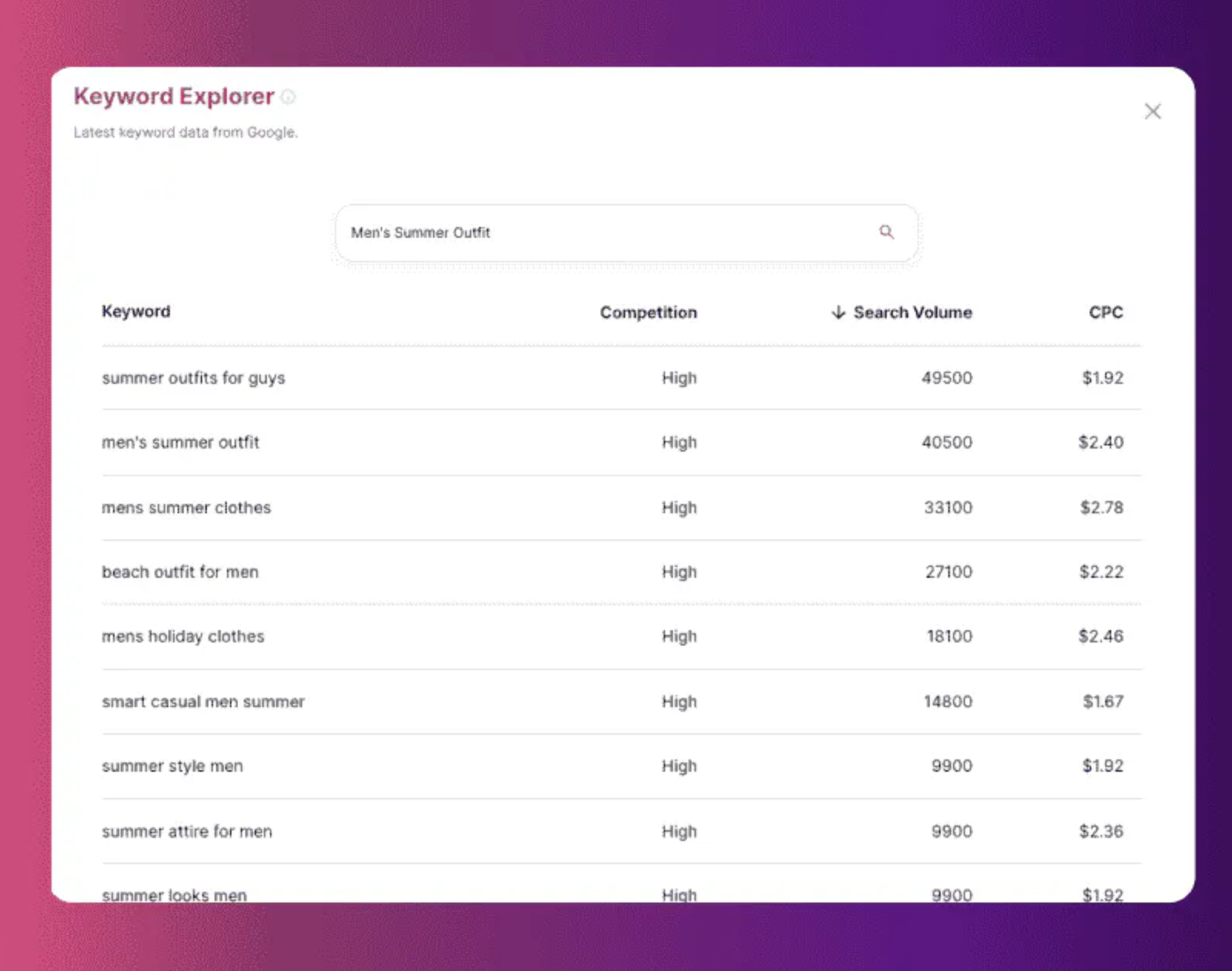
Keyword analysis is a vital component of any successful SEO strategy. Traditional methods can be time-consuming and often involve a lot of guesswork. However, AI SEO tools have revolutionized this process by introducing more data-driven, efficient, and precise methods of conducting keyword research.
- Predicting Keyword Performance: AI-powered tools like BrightEdge can predict which keywords will generate the best results. This prediction is based on complex algorithms that analyze historical search data, current trends, and competitive landscape.
- Insights into Search Trends: AI SEO tools also offer insights into search trends by identifying patterns in user behavior and preferences. Tools like *Ahref *make it easy to discover trending topics and keywords in your niche.
- Competitive Analysis: Understanding what keywords your competitors are ranking for can give you a competitive edge. AI SEO tools like Junia AI provide an in-depth analysis of competitor keyword strategies, helping you identify potential gaps you can exploit.
- Traffic Estimation: AI SEO tools can offer potential traffic estimates for specific keywords, helping you gauge the value of incorporating them into your strategy. An accurate traffic estimate allows you to prioritize high-performing keywords and allocate resources effectively.
By leveraging these functionalities, you can develop a solid keyword strategy that is not only based on facts and figures but also aligned with user intent and market trends. The use of AI SEO in keyword analysis facilitates more strategic decision-making, ultimately leading to improved website visibility and higher rankings on search engine results pages (SERPs).
“The goal is not to just find keywords, but to find the right keywords that will drive valuable traffic to your site.”
AI SEO in User Experience Optimization
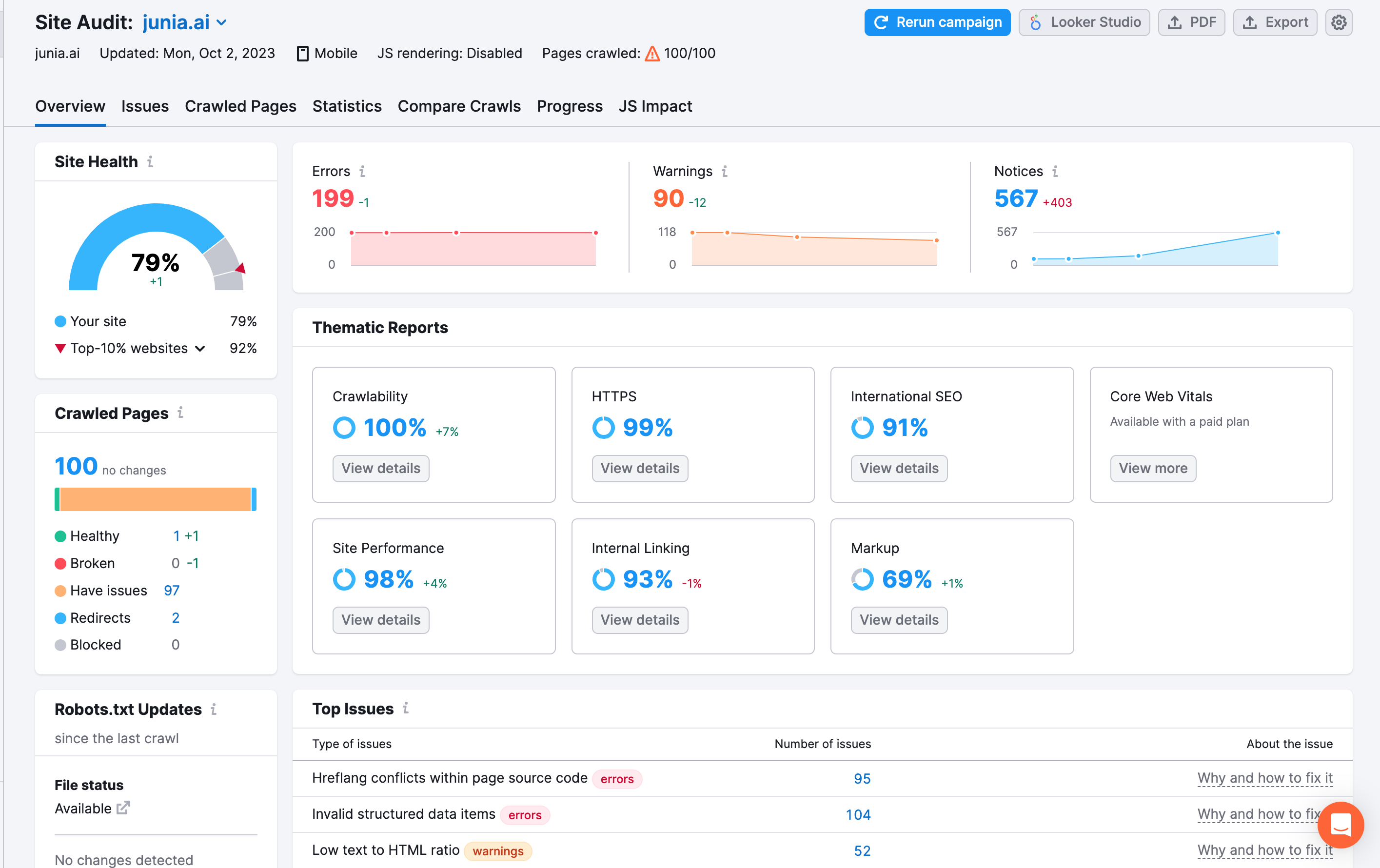
Understanding that user experience (UX) is a crucial ranking factor for seo, the power of AI can be harnessed to optimize it. AI has the innate ability to analyze various page experience signals and make necessary adjustments to enhance user experience.
Here are some of the critical areas where AI comes into play in UX optimization:
- Mobile-Friendliness: With the increasing use of smartphones, having a mobile-friendly website is no longer optional but a necessity. AI can assess your site's mobile compatibility and suggest improvements to ensure it provides an optimal user experience on all device types.
- Safe-Browsing: Users value their online security, and Google factors this into their ranking algorithm. AI tools like BrightEdge and Atomic Reach can evaluate your website for potential security issues, ensuring that it complies with safe-browsing practices.
- HTTPS-Security: SSL encryption is vital for protecting user data and building trust with your visitors. AI can verify whether your site uses HTTPS security, which is another important ranking signal for Google.
- Intrusive Interstitial Guidelines: Pop-ups and other intrusive interstitials can harm your UX and SEO if not managed correctly. AI SEO tools analyze these aspects following the guidelines set by Google, providing recommendations to balance promotional strategies with user experience.
In addition, AI significantly streamlines complex tasks such as data analysis and technical SEO. By automating these processes, you can focus more on content creation and strategy, leading to a significant improvement in your website's user experience overall.
For instance, an AI SEO tool called Market Brew stands out by providing real-time simulations of search engine behavior, allowing you to see how changes to your website could impact its search visibility before you even implement them.
To sum up:
"AI not only simplifies the process of UX optimization but also makes it more effective, leading to a better user experience and potentially higher search rankings."
AI SEO In Voice Search

With the increasing popularity of voice assistants like Amazon's Alexa, Apple's Siri, and Google Assistant, the field of search engine optimization (SEO) has undergone significant changes. According to Statista, it is predicted that by 2024, there will be around 8.4 billion voice assistants being used worldwide. This growing trend calls for a shift in SEO strategies, with a greater emphasis on optimizing for voice search to stay ahead of the curve.
How Voice Search SEO Works
To optimize your content for voice search, AI-powered SEO tools are extremely helpful. These tools work by identifying conversational keywords and questions that people commonly ask these voice assistants. But what does this mean exactly? Let's take a closer look.
Identifying Conversational Keywords and Long-Tail Phrases
Unlike traditional text-based searches where users often input short phrases or keywords, voice search usually involves longer, more natural language phrases or sentences. For example, while someone might type "weather today" into a search engine, they might ask Siri, "What's the weather like today?"
AI SEO tools analyze large amounts of data from voice searches to find these conversational keywords and long-tail phrases. They then provide suggestions on how to optimize your content with these conversational phrases.
Incorporating Frequently Asked Questions (FAQs)
Another trend that has emerged with voice search is the frequent use of question-based queries. AI SEO tools can help identify common questions that people ask their voice assistants. By including these questions in your content (for example, in an FAQ section), you can improve your visibility for voice searches.
"By incorporating AI SEO tools into your SEO strategy, you can gain an advantage in the rapidly expanding world of voice search. By focusing on conversational keywords and frequently asked questions, you're not just optimizing for algorithms — you're catering to real human behaviors and preferences."
AI SEO in Link Building

AI plays a crucial role in optimizing link building strategies, enabling you to identify valuable link opportunities and streamline your outreach efforts. Let's explore how AI can benefit your link building efforts.
Identifying High-Quality Link Opportunities
AI-powered SEO tools offer a data-driven approach to finding potential link-building opportunities. These tools analyze various factors such as site authority, relevance to your niche, traffic volume, and social signals. By doing so, they help you pinpoint high-quality sites that are worth pursuing for backlinks.
One example of such a tool is Alli AI, which provides comprehensive link prospecting by:
- Identifying authoritative domains that are relevant to your niche
- Highlighting websites that are already linking to your competitors
- Offering data-driven recommendations for websites most likely to link back
This automated analysis not only saves time but also ensures that you're targeting the most beneficial sites for your link building efforts.
"With AI, you're not just shooting in the dark. You're leveraging data-driven insights to target high-value links with precision."
Automating Outreach
In addition to finding potential sites for backlinks, AI also streamlines the outreach process. Crafting personalized outreach emails can be time-consuming, but AI Email Writers like smartwriter.ai can automate this process while maintaining a personal touch.
These tools can:
- Generate personalized outreach emails based on collected data about each prospect
- Schedule and send these emails at optimal times to increase open rates
- Track responses and automatically follow up if necessary
By automating these tasks, you save valuable time that can be better allocated to other important SEO activities or content creation.
In summary, AI is more than just a buzzword in the realm of link building. It's a game-changing tool that can assist you in identifying untapped link opportunities, automating your outreach process, and ultimately enhancing your site's visibility and ranking on search engines.
AI SEO In Predictive Analysis

In the ever-changing world of SEO, it's essential to stay ahead of the game. One area where AI can be incredibly helpful is in predictive analysis. By analyzing past data and identifying patterns, AI can accurately predict future trends or behaviors. This can be a game-changer for your SEO strategy and content optimization.
What is Predictive Analysis?
Predictive analysis is all about using data, statistical algorithms, and machine learning techniques to identify the likelihood of future outcomes based on historical data. In the context of SEO, this means looking at previous trends, user behavior, and web traffic patterns to predict what might happen in the future.
AI-powered tools like BrightEdge and Market Brew are great examples of solutions that offer predictive analytics capabilities.
How Can Predictive Analysis Help Your SEO Strategy?
Predictive analysis can have several benefits for your SEO strategy:
- Content Optimization: By predicting future trends and topics that are likely to become popular, you can optimize your content ahead of time. This gives you an advantage because your content will be ready when these topics start gaining traction.
- Keyword Planning: Predictive analysis can help you identify potential popular keywords based on current data trends. This allows for more strategic keyword planning and ensures that your content remains relevant.
- Understanding User Intent: By analyzing past user behavior, predictive analysis provides insights into potential future user needs and interests. This helps you tailor your content better to meet anticipated user expectations.
- Link Building Strategy: Predictive analytics can forecast which types of websites might gain more popularity or authority in the future. Armed with this knowledge, you can plan your link building efforts more effectively.
It's important to note that while predictive analysis can provide valuable insights into potential future trends, it's not foolproof. External factors like sudden changes in market conditions or user behavior can still impact outcomes. Nevertheless, the ability to predict future trends gives you a significant advantage and allows for more strategic decision-making in your SEO efforts.
AI In Image and Video SEO
Artificial Intelligence (AI) is transforming Search Engine Optimization (SEO), specifically in improving the visibility of images and videos on your website. Here are three ways AI can help you optimize your multimedia content for better search engine rankings:
1. Automated Alt-Text Suggestions
AI SEO tools like Junia.AI can automatically generate suggestions for alt-text (alternative text) for your images. Alt-text provides a description of the image content, helping search engines understand what the image is about. By using AI-powered alt-text suggestions, you can:
- Ensure that every image contributes to your overall SEO score.
- Enhance the user experience for visitors who use screen readers.
- Improve your website's accessibility, which is important for search engines.
2. Image Recognition Technology
Another powerful AI feature is image recognition technology, which can significantly boost your SEO efforts. This technology identifies objects and elements in an image, giving you insights on how to optimize these visuals for better search engine understanding. For example, tools like DALL·E 3 use advanced machine learning algorithms to accurately categorize images, resulting in:
- More relevant images to the page content.
- Higher chances of appearing in Google's image search results.
3. Video Transcription Services
AI SEO also plays a role in improving the visibility of video content through automated transcription services. Platforms such as Atomic Reach convert dialogue from videos into text format. This text can be indexed by search engines, making your video content more discoverable and improving its SEO ranking potential.
By leveraging this feature, you can:
- Make your multimedia content searchable.
- Increase the time users spend on your site as they read transcriptions or use them as reference points while watching videos.
- Provide an alternative way to consume content for users who prefer reading over watching videos.
AI in Parasite SEO
Parasite SEO, also known as barnacle SEO, is an area where AI SEO shines. This unique aspect of SEO builds upon the strength of powerful, well-known websites to help promote smaller, less authoritative sites.
Understanding Parasite SEO
The term "parasite" might sound negative at first, but it accurately describes the essence of this technique. The content from your site "attaches itself" to these high-ranking websites and benefits from their established search engine credibility. It's similar to a barnacle attaching itself to a whale and moving along with it through the ocean.
However, Parasite SEO is not about piggybacking without merit — it's about creating valuable content that complements the high-authority site while also contributing to your own site's visibility.
How AI Helps in Parasite SEO?
AI plays a crucial role in streamlining and optimizing this process. With its advanced machine learning algorithms and data analysis capabilities, AI can:
- Identify Suitable Host Sites: AI tools such as Moz can effectively analyze numerous factors such as domain authority, relevance to your niche, audience demographics and more for thousands of potential host sites. This enables you to focus on platforms that yield maximum benefits.
- Optimize Content Creation: Once suitable host sites are identified, AI SEO Tools with Parasite SEO support can assist with creating optimized content that would adhere to the specific requirements of these platforms while also aligning with your brand message and SEO goals.
- Monitor Performance: Post publishing, AI continuously monitors and analyzes performance metrics to provide insights into how well your parasite SEO strategy is working and what adjustments may be necessary for improvement.
This innovative use of AI in the field of Parasite SEO allows businesses to leverage the standing of established platforms for their benefit without having to start from scratch or invest heavily in building their own domain authority. Essentially, it's about being smart with your SEO strategy and making technology work for you.
Summary of the Types of AI SEO
These AI-driven strategies are all part of a comprehensive and effective SEO plan. By understanding how they work and integrating them into your SEO practices, you can maximize your online presence, improve your website's user experience, climb up the search engine rankings, and reach authority mode in SEO 10X faster.
AI in SEO: Tools and Plugins
When it comes to AI SEO, there are several tools that can help improve your website's search engine rankings. These tools use artificial intelligence to analyze your content and provide suggestions for optimizing your SEO strategy. Let's take a look at some of the most popular ones:
1. LinkStorm
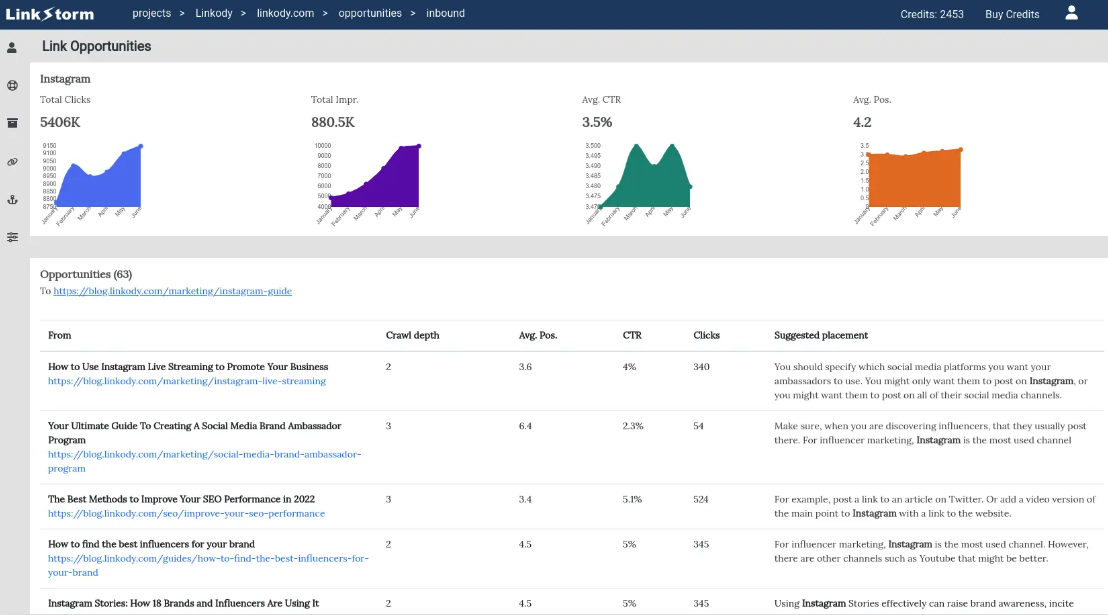
LinkStorm is the best internal linking tool, providing an exceptional AI-powered system that takes the internal linking of your website to a whole new level. It uses a sophisticated algorithm to automatically analyze your website's content, identify connection points, and suggest relevant internal links. The primary aim is to improve your site's structure and enhance the overall user experience.
By implementing the intelligent suggestions provided by LinkStorm, you can significantly enhance the crawlability of your website, making it easier for search engine bots to index your web pages. This increased efficiency in page indexing can result in improved visibility in search results and drive more organic traffic to your site.
Features of LinkStorm
LinkStorm comes with a range of impressive features that make it a valuable addition to any SEO toolkit:
- AI-Powered Analysis: LinkStorm uses advanced artificial intelligence to perform in-depth analysis of your content, understanding its context and identifying potential link opportunities.
- Automated Internal Link Suggestions: The tool suggests internal links based on the analyzed content, helping you create a more interconnected website structure without the manual effort.
- User Experience Optimization: By suggesting appropriate internal links, LinkStorm improves navigation within your site, enhancing user experience and potentially reducing bounce rates.
- Crawlability Enhancement: Improved internal linking means better crawlability for search engine bots - this can boost your visibility on search engine result pages (SERPs).
Benefits
Utilizing LinkStorm offers several key benefits:
- Efficient Time Management: With automated internal link suggestions, you save time that would otherwise be spent on manual link building.
- Enhanced User Experience: Better site navigation due to effective internal linking can lead to improved user experience and higher user engagement.
- Improved SEO Performance: By improving your website's crawlability, LinkStorm helps increase its visibility on SERPs, which can ultimately lead to increased organic traffic and improved SEO performance.
- Competitive Edge: Incorporating AI in your SEO strategy can give you a competitive advantage, as it allows you to optimize your site more efficiently and effectively than traditional methods.
Using LinkStorm is about merging technology with strategy, and letting artificial intelligence handle the complex task of internal link building, while you focus on creating high-quality content for your audience.
2. Junia AI
Junia AI is one of the best AI SEO tools available today. It is designed to help you with keyword research and content optimization, using advanced artificial intelligence techniques.
Features of Junia AI
Junia AI offers several unique features that set it apart from other SEO tools:
- AI-Powered Keyword Research: Junia AI analyzes your content in detail, looking at how well it matches various keywords. Instead of just suggesting keywords, it provides a comprehensive analysis of your content's performance with respect to these keywords.
- Real-time Content Generation with Google Search Integration: Junia AI provides real-time content suggestions based on current Google search trends. This feature helps you identify relevant trending topics in your industry.
- Brand Voice Feature: This tool ensures consistency across all your content by maintaining your brand's unique voice. It avoids generic recommendations and tailors its suggestions to suit your brand's style and tone.
- Advanced AI Text Editor: With an intuitive text editor powered by AI, Junia AI simplifies the process of creating SEO-optimized content. The AI text editor provides real-time feedback as you write, helping you create engaging, SEO-friendly copy.
How it Works
Junia AI uses artificial intelligence to analyze your website's content in-depth. It identifies areas where your content might be lacking from an SEO perspective, providing actionable recommendations for improvement.
Moreover, it not only suggests what topics are currently trending but also predicts how making certain changes to your website could impact its ranking on search engine results pages (SERPs).
In essence, Junia AI is more than just an AI SEO tool; it's a comprehensive solution that empowers you to make strategic decisions based on data-driven insights, ultimately improving your website’s visibility and ranking.
3. SEMrush Writing Assistant
The SEMrush Writing Assistant is another AI-powered SEO tool that can significantly enhance your SEO efforts. This tool is backed by the robust database of SEMrush, a leading name in the world of SEO, which gives you access to extensive data-driven insights.
Key Features and Benefits of the SEMrush Writing Assistant:
- Real-Time SEO Recommendations: As you write your content, this tool provides real-time recommendations to ensure it aligns with best SEO practices. This includes suggestions for keyword usage, semantics, readability, and text length.
- Readability Check: The tool checks your content for readability using industry standards like the Flesch-Kincaid readability score. This helps you maintain a balanced complexity level in your writing, making it accessible to a broad audience.
- SEO Content Template: Based on your target keywords, the SEMrush Writing Assistant generates an SEO content template that provides recommendations on semantically related words, backlink sources and potential websites for acquiring guest posts.
- Content Quality Assessment: Beyond SEO, this AI-powered tool also assesses the overall quality of your content in terms of grammar, style, tone and originality. It even offers suggestions to enhance your text's clarity and coherence.
- Plagiarism Checker: To ensure that your content is unique and not copied from elsewhere on the web, the SEMrush Writing Assistant includes a plagiarism checker.
In summary, the SEMrush Writing Assistant does more than just optimizing your content for search engines - it aids in creating engaging and user-friendly content that resonates with your audience while adhering to Google’s E.A.T (Expertise, Authoritativeness, Trustworthiness) guidelines.
4. ChatGPT
ChatGPT, developed by OpenAI, is a powerful tool that can assist with content creation, ultimately benefiting your SEO efforts. Although it's not specifically designed for SEO, it can greatly contribute to improving your search engine rankings by generating compelling and natural-sounding content that grabs the attention of readers and encourages them to stay on your site.
How ChatGPT Can Help Your SEO Strategy
By leveraging ChatGPT, you can effectively enhance your SEO strategy in the following ways:
- Creating Attention-Grabbing Blog Post Titles: The title of your blog post is often the first thing readers see. With ChatGPT, you can generate a range of interesting and catchy titles related to your chosen topic.
- Crafting Persuasive Product Descriptions: In the world of e-commerce, product descriptions have a significant impact on consumers' purchasing decisions. ChatGPT can assist in writing persuasive descriptions that highlight the unique features and benefits of your products, making them more appealing to potential customers.
- Engaging Users Through Conversational Marketing: By utilizing ChatGPT, you have the ability to create interactive chatbot scripts or engaging Q&A sections on your website. This not only improves user experience but also increases the amount of time visitors spend on your site - a crucial factor that can positively influence your search engine rankings.
"While ChatGPT may not be a conventional SEO tool, its capability to generate captivating content makes it an invaluable asset in any SEO toolkit. Remember, creating high-quality content that resonates with users is central to achieving success with SEO."
In essence, by incorporating ChatGPT into your content creation process, you're not just optimizing for search engines - you're also optimizing for your audience by providing them with content that they find interesting, enjoyable, and share-worthy.
5. Surfer SEO
Surfer SEO is a versatile AI SEO tool that can enhance your website's performance in search engine results. Here are some of its top features:
- Keyword analysis: Surfer SEO helps you discover relevant keywords to target in your content, enabling you to optimize it for better search engine rankings.
- SERP analyzer: This feature allows you to examine the top-ranking pages for a specific keyword on SERPs. By understanding what content is already performing well, you can create more focused and valuable content with a higher chance of ranking.
- Content editor: Surfer SEO offers suggestions for enhancing your existing content based on AI algorithms. It can advise you on which keywords to include, how to structure your content, and even provide insights into what your competitors are up to.
While these AI SEO tools provide impressive capabilities, it's important to remember that they should complement human expertise in digital marketing and SEO strategies. These tools excel at tasks that involve analyzing large amounts of data and making predictions. However, the creativity and adaptability of human intelligence remain crucial for crafting content that truly resonates with your audience.
The Rise of Answer Engine Optimization (AEO)
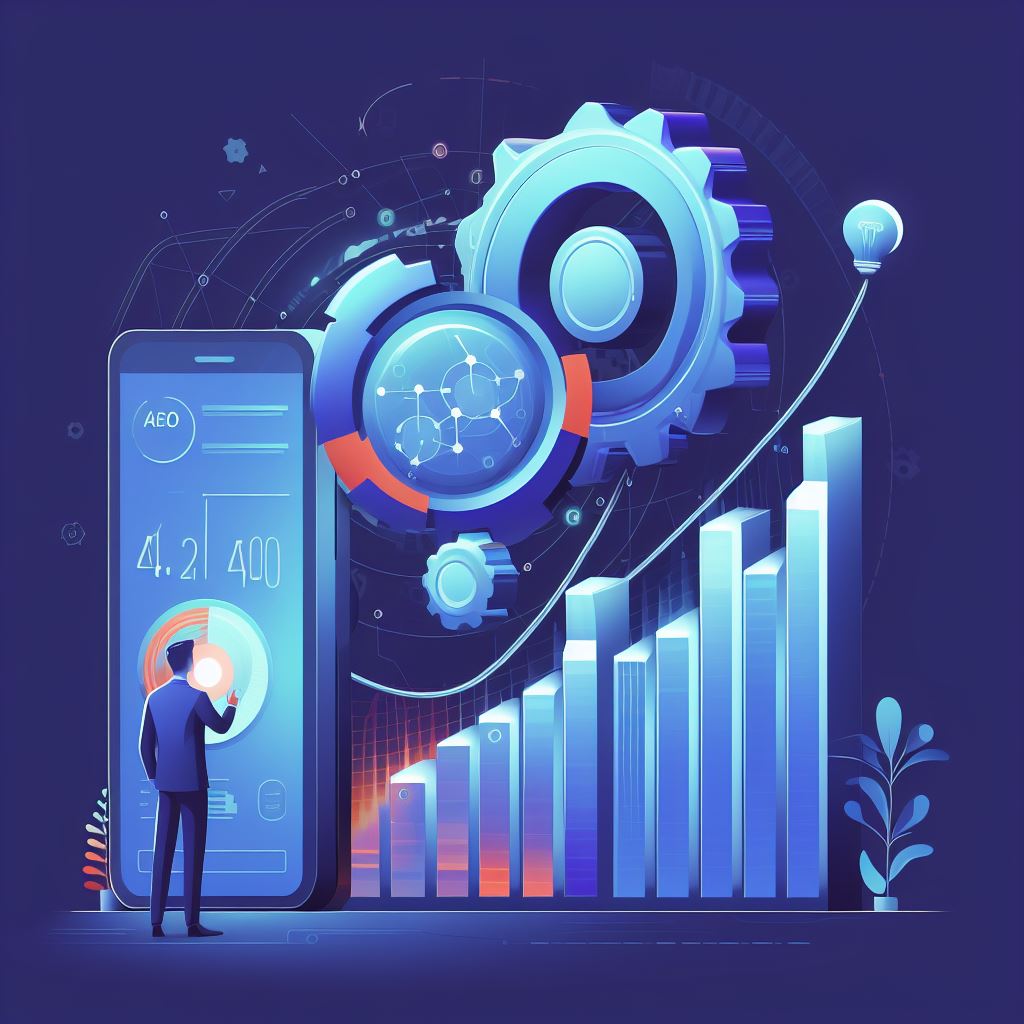
When you think about SEO, you likely consider the traditional elements - keywords, meta descriptions, and link building. However, with the rise of AI, there's another player on the field: Answer Engine Optimization (AEO). This innovative approach to SEO has been making waves in the digital marketing world.
What is Answer Engine Optimization (AEO)?
AEO is a subset of SEO that centers around providing direct answers to user queries. Unlike standard search engine results that provide a list of links for users to sift through, AEO provides a direct answer to the search intent. This is highly beneficial for users as they can get their answers promptly without having to navigate through numerous websites.
How Does AEO Work?
To leverage AEO effectively, there are two key strategies to focus on:
- Frequently Asked Questions (FAQs): Frequently Asked Questions are a great way to provide quick answers to common queries related to your business or industry. By structuring your website content around these questions and providing concise, well-written answers, you can improve your chances of appearing in direct answer results.
- Internal Linking: Internal linking plays an important role in AEO. By linking relevant content within your site, you help search engines understand the context and relationship between different pages on your site. This not only boosts your overall site authority but also increases the chances of your content being picked up by AEO.
The Impact of AI on AEO
AI has had a significant impact on AEO and is expected to continue shaping its future. AI-powered tools like Google's RankBrain and BARD are designed to better understand user intent and deliver more accurate search results. These tools analyze billions of searches to identify patterns and trends, helping search engines provide more personalized results.
With AI's ability to process vast amounts of data quickly and accurately, it's no surprise that it's changing how we approach SEO. Generative AI models like Google BARD are capable of creating comprehensive responses based on user queries rather than just listing websites that might contain the answer.
The Future of AEO
As we move forward, it's clear that AEO will play a crucial role in shaping the future of SEO. It brings a whole new level of user experience, one that is more direct, personalized, and relevant. Businesses need to adapt to this changing landscape to stay competitive and ensure their content reaches its intended audience effectively.
While AI's influence on AEO is undeniable, it's also important to note that human expertise remains crucial. AI can analyze data and identify patterns, but it still requires human insight to truly understand the nuances of language and search intent. Therefore, while we harness the power of AI in SEO, we should also remember the irreplaceable value of human touch in crafting engaging and effective content.
How Generative AI Search Impacts the SEO Industry
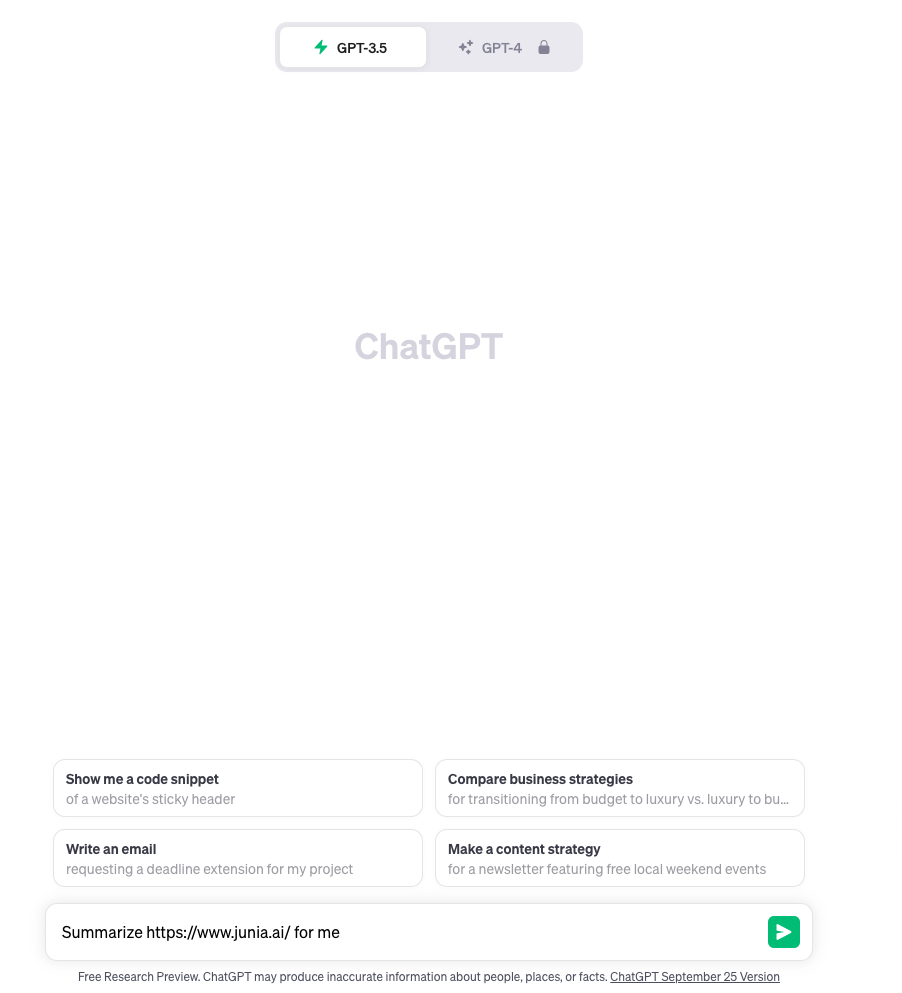
Generative AI tools like ChatGPT and Google SGE have changed the way we search the internet. Instead of just giving a list of website links, these tools generate complete answers from all over the web, removing the need for manual searching. But this new way of searching has a big effect on the SEO industry.
The Decline of Traditional SEO
In 2022 alone, the SEO industry made a huge $68.1B globally. But with generative AI becoming more popular, this number might soon be a thing of the past. Why? Because generative AI reduces the reason for users to browse through search results, which affects both SEO consultants and search engines in terms of revenue.
- How it Affects SEO Consultants: As generative AI gets better at giving accurate and complete answers, users are less likely to click on multiple pages of search results. This directly affects SEO professionals whose main job is to make websites show up on the first page of search results.
- How it Affects Search Engines: Search engines make money from paid ads, sponsored placements, and affiliate marketing (like Google Ads contributing about 58% of Google's 2022 income). With fewer users looking at different search result pages, there's a chance that ad views and click rates might go down.
The Rise of Generative AI
Even though it brings challenges for traditional SEO, generative AI has great potential. Big search engine companies are already trying out ways to make money from generative AI answers.
- Generative AI in Search Labs: Experiments are happening in Search Labs to see how generative AI can be used well in searches. These experiments give important information about how users act and what they like when they interact with AI-created content.
- Generative AI in Shopping: Generative AI is also being used in e-commerce with constantly updated sets of data that have lots of information about products. This might change how people shop online.
- Generative AI in Search: By showing important web content and making ads more clear, generative AI makes it easier for users to find what they want.
Dealing With Limitations
But it's not all easy for generative AI. There are some problems that need to be solved, like how new its technology is, how limited it is in who can use it, and the risk of getting wrong or copied answers.
However, the work being done now and the improvements being made show that generative AI will probably be better than traditional SEO methods at some point.
While generative AI might bring difficulties for the traditional SEO industry, it also gives chances for new ideas and growth. The key is to change and grow with these new technologies.
Ethical Considerations and Future of AI SEO
As AI SEO becomes more prevalent, it's important to address the ethical considerations this technology raises. One major issue is transparency. With AI-generated content, it can be difficult for users to determine where the information is coming from, which can potentially lead to misinformation if not handled properly.
Transparency in AI-Generated Content
One key issue with AI-generated content is transparency. It's essential for users to know where the information is coming from. If the source of data is unclear, it becomes challenging to assess its credibility. This lack of transparency can also make it difficult for users to verify the accuracy and reliability of the information they come across.
Potential Challenges and Opportunities
Despite these concerns, there are also numerous opportunities that come with AI SEO.
Opportunities:
- Improved website rankings and user experience.
- Faster execution of tasks and improved SERP rankings.
- Higher website traffic and increased conversions.
It's important to note that while AI can automate certain tasks and provide valuable insights through data analysis, it's not a replacement for human expertise. Rather, it should be viewed as a tool that complements human abilities—one that requires careful management and ethical considerations.
